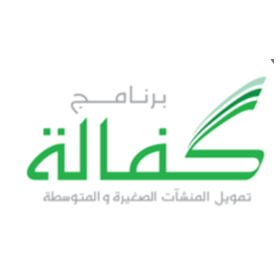
The Saudi Kafalah Program aims to overcome the financing challenges faced by small and medium enterprises (SMEs) that lack the ability to provide the required guarantees to financial institutions.
The program seeks to bridge the gap between financial institutions and SMEs, attracting a new segment of investors to support the business sector.
It is worth noting that the total number of guarantees issued since the program’s launch until the end of 2020 has reached approximately 35,000 guarantees, with varying financing values amounting to 48.3 billion SAR. The number of beneficiary enterprises has exceeded 10,900. The wholesale and retail trade sector was the primary beneficiary, with 2,000 enterprises benefiting from the program.

The Kafala Program provides guarantees to financial institutions to assist small and medium-sized enterprises (SMEs) and entrepreneurs in obtaining the necessary financing to start their projects and grow their businesses. The goal is to increase the contribution of SMEs to the GDP from 20% to 30%.
Participating Financial Institutions with “Kafala”
Several Saudi banks and financial institutions are participating with the Kafala Program to provide the necessary support for SMEs, including: (National Commercial Bank, Riyadh Bank, Bank Al-Jazira, Saudi Investment Bank, Alawwal Bank, Saudi British Bank, Al Rajhi Bank, Gulf Finance, Saudi Finance Company, etc.).

Kafala Program Financing Policy
The maximum limit for small and micro-enterprises is up to 2.5 million SAR.
The maximum limit for medium-sized enterprises does not exceed 15 million SAR.
Kafala Program Conditions
The project’s activity must be financially and economically viable, suitable for the program and the funding entity, and aligned with Vision 2030.
The project should contribute to the employment and training of Saudis.
The project should help replace imported products with local products.
The project should focus on producing new goods and offering innovative services.
Documents Required from Financing Entities
A valid commercial registration certificate.
A copy of the national ID or residency for individual business owners.
Internal financial statements or activity financial statements.
A valid certificate from the Social Insurance Institution.
A valid certificate from the Zakat and Income Authority.
A valid Saudization certificate.
A valid license copy.
A VAT registration certificate.